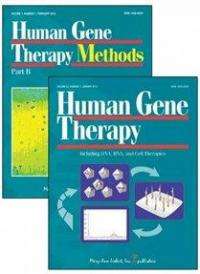New advances in treating inherited retinal diseases highlighted in Human Gene Therapy

Gene therapy strategies to prevent and treat inherited diseases of the retina that can cause blindness have progressed rapidly. Positive results in animal models of human retinal disease continue to emerge, as reported in several articles published in Human Gene Therapy, a peer-reviewed journal from Mary Ann Liebert, Inc., publishers. The articles are available free on the Human Gene Therapy website at http://www.liebertpub.com/hum.
After 20 years of promising research, testing in animal models, and initial clinical trial results of gene therapy to treat retinal dystrophies, Robin Ali, University College London Institute of Ophthalmology (UK) is "optimistic about the future prospects for retinal gene therapy" mainly because the retina has proven to be a good and accessible target for gene delivery, and scientists have developed efficient and safe viral delivery systems that can successfully introduce therapeutic genes into photoreceptor cells in the retina. The main challenge now is to increase the number of gene therapies in clinical trials and to optimize these treatments for patients, says Dr. Ali in the Commentary "Gene Therapy for Retinal Dystrophies: Twenty Years in the Making."
Retinitis pigmentosa (RP) is one group of inherited disorders that causes degeneration of the retina due to various gene mutations. Astra Dinculescu, University of Florida, Gainesville, and colleagues from University of Pennsylvania (Philadelphia), National Autonomous University of Mexico, and Glasgow Caledonian University (Scotland) provide proof-of-concept that gene-based therapy may be able to replace the mutant gene in one type of RP in humans. They demonstrate that replacement of the mutant gene in a mouse model of RP prevented subsequent degeneration of the retina in the article "Gene Therapy for Retinitis Pigmentosa Caused by MRFP Mutations: Human Phenotype and Preliminary Proof of Concept."
Haoyu Mao and coauthors from University of Florida, Gainesville, and University of North Texas Health Science Center (Fort Worth) showed long-term success in maintaining normal retinal structure and function following delivery of a human rhodopsin gene to a mouse model of RP. Their findings are reported in the article "Long-Term Rescue of Retinal Structure and Function by Rhodopsin RNA Replacement with a Single Adeno-Associated Viral Vector in P23H RHO Transgenic Mice."
"Inherited diseases affecting retinal function are likely to be in the first wave of commercial successes," says James M. Wilson, MD, PhD, Editor-in-Chief of Human Gene Therapy, and Director of the Gene Therapy Program, Department of Pathology and Laboratory Medicine, University of Pennsylvania Perelman School of Medicine, Philadelphia.


















